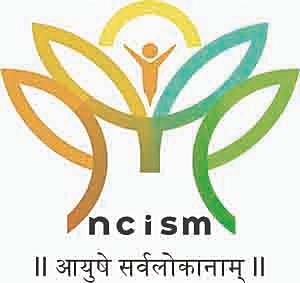National Commission for Indian System of Medicine
National Commission for Indian System of Medicine (NCISM) is a statutory body in India established to regulate and promote the Indian System of Medicine. This includes the traditional systems of healthcare like Ayurveda, Yoga, Naturopathy, Unani, Siddha, and Sowa-Rigpa which have been integral to the Indian culture and heritage. The commission was established with the objective of ensuring the optimal development and propagation of the Indian System of Medicine, maintaining the standards of education, and ensuring the quality of practice in these traditional systems.
History and Establishment[edit | edit source]
The National Commission for Indian System of Medicine was established following the passing of the National Commission for Indian System of Medicine Act, by the Parliament of India. This act was a part of the government's initiative to restructure and reform the regulatory framework for medical education in India, ensuring that the traditional systems are preserved, promoted, and integrated into the healthcare delivery system of the country.
Functions and Responsibilities[edit | edit source]
The primary functions of the NCISM include:
- Regulation of medical education within the Indian System of Medicine across India.
- Ensuring the quality and standards of education are maintained in colleges, universities, and institutions offering courses in the Indian System of Medicine.
- Accreditation of medical institutions offering courses in the Indian System of Medicine.
- Assessment and rating of medical institutions to ensure compliance with the prescribed norms.
- Granting recognition to medical qualifications at both undergraduate and postgraduate levels.
- Providing ethical oversight in the practice and profession of the Indian System of Medicine.
- Advising the Government of India on matters relating to the recognition of medical qualifications in the Indian System of Medicine.
Composition[edit | edit source]
The NCISM is composed of various members including experts in the field of the Indian System of Medicine, representatives from the Ministry of AYUSH, nominated members from various states and union territories, and elected members from the practitioner community. This diverse composition ensures that the commission benefits from a wide range of perspectives and expertise in fulfilling its mandate.
Challenges and Opportunities[edit | edit source]
While the NCISM plays a crucial role in the promotion and regulation of the Indian System of Medicine, it faces several challenges including the integration of these traditional systems with the mainstream healthcare delivery system, ensuring the scientific validation of traditional practices, and combating the issues of quackery and unregulated practice. However, there are significant opportunities as well, particularly in the global interest in alternative and traditional forms of medicine, which can help in the internationalization of the Indian System of Medicine.
Impact[edit | edit source]
The establishment of the NCISM has been a significant step towards recognizing and formalizing the Indian System of Medicine. It has helped in creating a structured and regulated environment for education and practice in these systems, thereby ensuring their growth, scientific validation, and integration into the healthcare system of India.
Search WikiMD
Ad.Tired of being Overweight? Try W8MD's physician weight loss program.
Semaglutide (Ozempic / Wegovy and Tirzepatide (Mounjaro / Zepbound) available.
Advertise on WikiMD
|
WikiMD's Wellness Encyclopedia |
| Let Food Be Thy Medicine Medicine Thy Food - Hippocrates |
Translate this page: - East Asian
中文,
日本,
한국어,
South Asian
हिन्दी,
தமிழ்,
తెలుగు,
Urdu,
ಕನ್ನಡ,
Southeast Asian
Indonesian,
Vietnamese,
Thai,
မြန်မာဘာသာ,
বাংলা
European
español,
Deutsch,
français,
Greek,
português do Brasil,
polski,
română,
русский,
Nederlands,
norsk,
svenska,
suomi,
Italian
Middle Eastern & African
عربى,
Turkish,
Persian,
Hebrew,
Afrikaans,
isiZulu,
Kiswahili,
Other
Bulgarian,
Hungarian,
Czech,
Swedish,
മലയാളം,
मराठी,
ਪੰਜਾਬੀ,
ગુજરાતી,
Portuguese,
Ukrainian
Medical Disclaimer: WikiMD is not a substitute for professional medical advice. The information on WikiMD is provided as an information resource only, may be incorrect, outdated or misleading, and is not to be used or relied on for any diagnostic or treatment purposes. Please consult your health care provider before making any healthcare decisions or for guidance about a specific medical condition. WikiMD expressly disclaims responsibility, and shall have no liability, for any damages, loss, injury, or liability whatsoever suffered as a result of your reliance on the information contained in this site. By visiting this site you agree to the foregoing terms and conditions, which may from time to time be changed or supplemented by WikiMD. If you do not agree to the foregoing terms and conditions, you should not enter or use this site. See full disclaimer.
Credits:Most images are courtesy of Wikimedia commons, and templates Wikipedia, licensed under CC BY SA or similar.
Contributors: Prab R. Tumpati, MD

